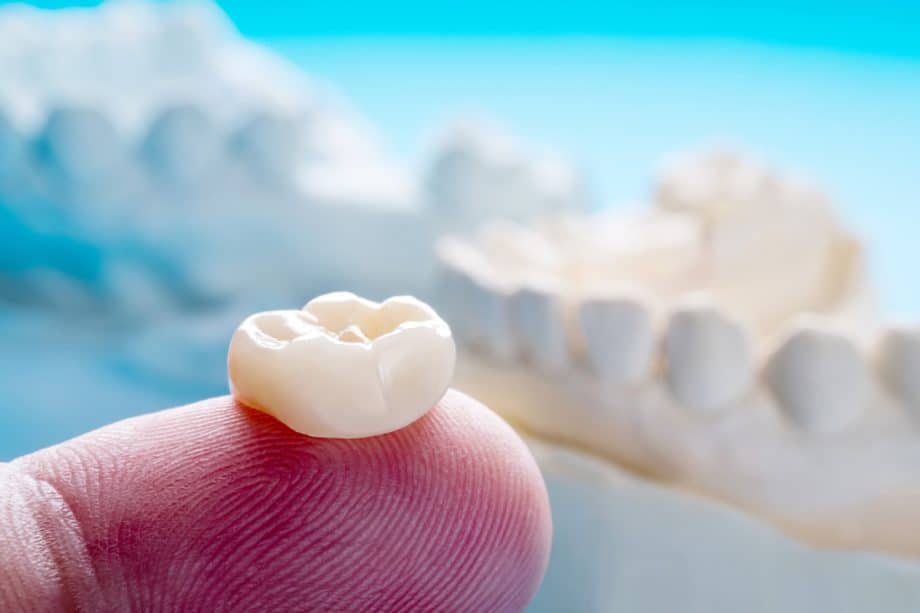A dental crown is a tooth restoration option that can preserve your natural tooth and allow it to remain in place. A tooth that is severely decayed, cracked, fractured, or otherwise compromised can often be saved with a dental crown.
If your dentist has recommended that you get a crown, you may have some questions. How long do dental crowns last? What are the benefits of crowns? Learn the answers to these questions and more about dental crowns.
What is a Dental Crown?
A dental crown is a tooth-shaped cover that can be placed over an existing tooth that is damaged. The tooth must be reduced in size first to make room for the crown to fit over it. Crowns are typically made of porcelain for a natural appearance, but metal crowns are also used in some situations. A tooth that has been fitted with a dental crown can function just like a normal tooth.
Average Lifespan of a Dental Crown
A dental crown may last anywhere from 5 to 25 years. On average they last about 15 years. With good care and maintenance, they can last even longer. Crowns can be replaced in most cases if the original is worn out or damaged, as long as the tooth material under the crown is still healthy and viable.
Benefits of Dental Crowns
- Keep your natural tooth. A crown allows the majority of your natural tooth material to remain in place. It simply adds a protective covering that keeps the tooth strong and healthy.
- The tooth root remains in place. The natural root of your tooth can stay in place for support underneath a crown, allowing you to chew effectively.
- Avoid expensive replacement teeth. By preserving the natural tooth with a crown, you prevent the need for tooth replacement, which will typically cost more than a crown.
- Natural appearance. A porcelain crown looks very natural. It can be custom made to the proper shade, size, and shape to blend in with the rest of your teeth.
How To Extend the Life of Your Dental Crown
To get as many years as possible out of your dental crown, follow these suggestions:
- Brush your teeth twice a day. Brushing your teeth twice a day, once in the morning and once at night, helps to keep your crown clean and the tooth under it healthy.
- Floss once a day. Floss your teeth once a day to remove plaque from the spaces between your teeth, including your crown.
- Go to the dentist twice a year. Regular dental cleanings and oral evaluations are important for your dental health. They can also identify any problems with your crown that would indicate a need for repair or replacement.
- Chew carefully in the area of your crown. Avoid chewing hard foods in the area of your crown.
- Avoid chewing non-food items. Don’t bite or chew on things other than food. Don’t use your teeth to open packages or remove tags.
- Wear a mouthguard if you grind your teeth. If you grind your teeth, wearing a mouthguard will protect your crown from damage.
Frequently Asked Questions About Dental Crowns
Is it better to get a crown or have the tooth removed?
If your natural tooth can be restored with a crown, we always recommend that over extraction. We would only resort to extraction if the tooth was too damaged to be saved, and then we would recommend replacement with a dental prosthetic.
Can plaque get under a crown?
It is possible for plaque to form under your crown if it is not properly sealed. This is why it is important to keep your teeth clean and see your dentist regularly.
Schedule a Consultation
If you have a tooth that may need a crown, contact R. Renan Williams, DDS to schedule a consultation. After a brief evaluation we can make a recommendation for the best tooth restoration option.
Call 817-281-4801 or contact us today to learn more and schedule an appointment.

